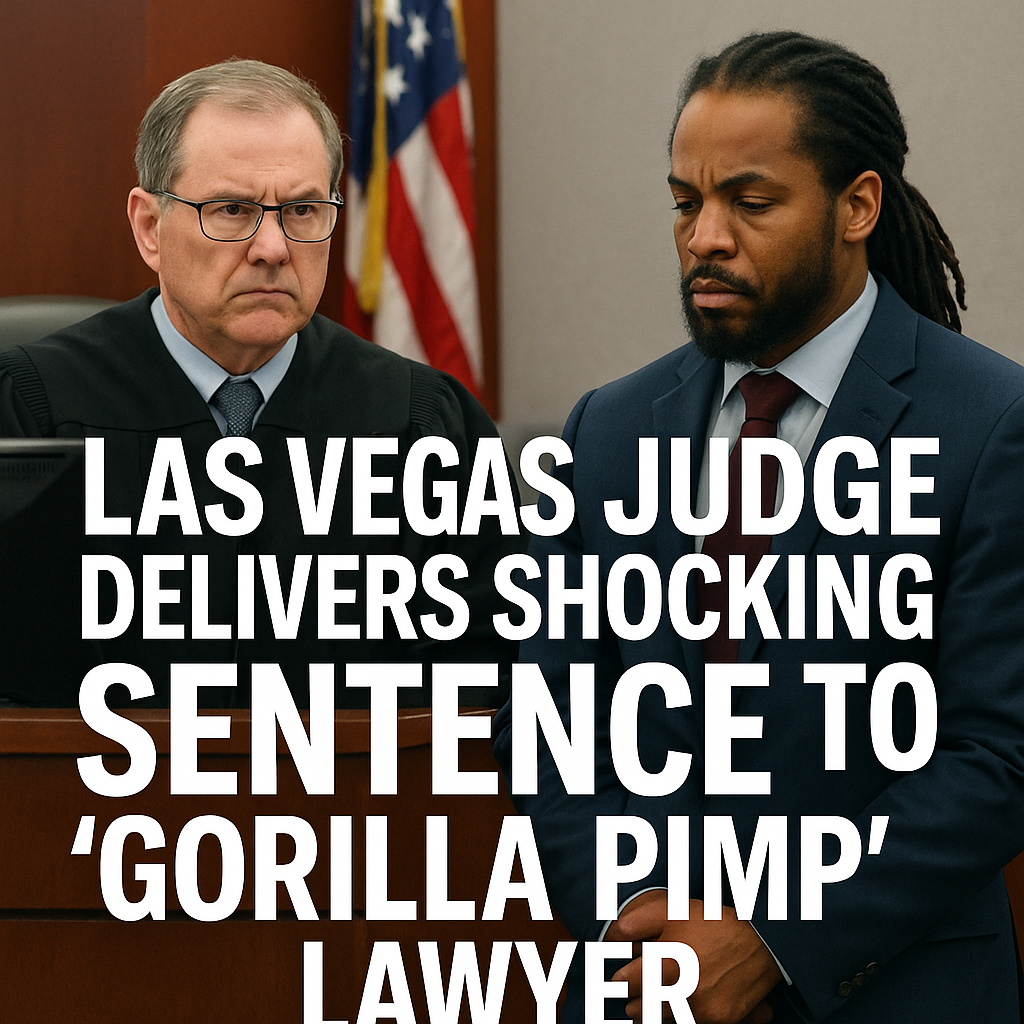Las Vegas Judge Delivers Shocking Sentence to ‘Gorilla Pimp’ Lawyer
Las Vegas Judge Delivers Shocking Sentence to ‘Gorilla Pimp’ Lawyer
The recent sentencing of the so-called “Gorilla Pimp” lawyer in Las Vegas has sparked outrage and mixed reactions across various communities and platforms. This case highlights the complexities surrounding legal accountability in cases of sex trafficking and the judicial system’s response to such serious crimes.
Background of the Case

In a high-profile case that has captured public attention, a Las Vegas judge handed down a sentence that many view as lenient for a man who was deeply enmeshed in a sex trafficking operation. Defending his conduct, attorney and former Las Vegas judge Paul P. Bison, better known as the “Gorilla Pimp,” received probation rather than the active jail time that prosecutors sought.
Despite extensive evidence detailing his involvement in trafficking vulnerable individuals, the judge ultimately decided that probation was an appropriate punishment. This verdict raises critical questions about judicial discretion and the effectiveness of legal systems in addressing crimes against marginalized groups.
Public Outcry and Reactions
The courtroom’s reaction to the sentencing was palpable, reflecting a broader outrage from anti-trafficking advocates and community activists. Proponents argue that sentences of this nature undermine the gravity of sex trafficking, minimizing the suffering endured by survivors. According to 8 News Now, the prosecution aimed for a more robust sentence, citing the pervasive impact of Bison’s actions on victims and the community at large.
Conversely, some legal experts suggest that the judge’s sentencing may have been influenced by mitigating factors in Bison’s case, including his lack of prior criminal history. Such nuances complicate the narrative, as some commentators have posited that the system’s flexibility may provide a pathway for rehabilitation rather than solely punitive measures.
Diverse Perspectives on Judicial Accountability
Opinions diverge sharply regarding the judge’s ruling and what it signifies for legal accountability in cases involving exploitation.
– For punitive measures: Advocates from various organizations assert that such leniency sends the wrong message to both perpetrators and victims, jeopardizing public trust in the system. For instance, arrington.org articulated concerns over a perceived trend towards minimal sentences for sex trafficking offenders, suggesting that it perpetuates a culture of impunity.
– For rehabilitative justice: On the other side of the debate, some legal analysts argue that the justice system must consider the complexities of each case individually. They emphasize the possibility of rehabilitation through probation, suggesting this approach may be a more constructive method of addressing criminal behavior without dismissing the victims’ experiences.
Both perspectives contribute to a nuanced discussion surrounding the effectiveness of the judicial system. As this case escalated into a public frenzy, it illuminated the delicate balance judges must strike when considering the ramifications of their sentences. Thus, understanding the full context of the situation goes beyond the sensational headlines that often dominate narratives surrounding legal proceedings.
Future Implications and Uncertain Conclusions
The case of the “Gorilla Pimp” not only sparks outrage but also highlights the ongoing challenges faced by legal institutions in confronting the realities of sex trafficking. With probation granted instead of jail time, many are left questioning the efficacy of current prosecution strategies and the overall handling of sex-related offenses by the judicial system.
As community leaders and activists continue to advocate for stricter sentencing laws and education programs about sex trafficking, a comprehensive approach is necessary for addressing victims’ needs while holding offenders accountable.
The dialogue surrounding this case indicates that increasing awareness and advocacy efforts may eventually lead to changes in policy— but the path forward remains fraught with challenges. While some advocates suggest that this incident could ignite a renewed push for reform in local legislation, others caution against becoming overly reactive without considering the broader implications for the legislative process.
As the conversation evolves, it will be essential for all parties involved—legal authorities, advocacy groups, and the public—to engage constructively and acknowledge the complexities wrapped within these cases. Balancing compassion for victims while ensuring justice prevails represents a daunting yet necessary pursuit in the ongoing fight against exploitation and trafficking in society.
In summary, while the Las Vegas judge’s decision has provoked strong sentiments, it also serves as a catalyst for a deeper examination of justice in trafficking cases. The evolving discourse around this issue may ultimately lead to more rigorous analyses of how the legal system accommodates both victims and offenders while striving for a fair outcome.





